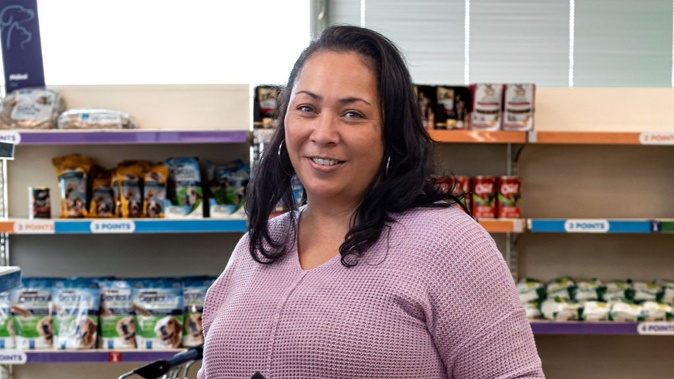
The doors of Whangārei’s social supermarket have been open for a year, but demand is so high that the shelves are struggling to stay stocked.
155 Whare Kai manager Samantha Cassidy said the social supermarket is struggling to supply the $7500 to $17,500 worth of groceries needed each week to cater for the free shopping slots.
Social supermarkets allow people who do not have reliable access to enough safe and nutritious food to choose what they need for themselves in a supermarket-style environment. Instead of using money to purchase food, there is a points system based on the needs of the household.
“We were getting numbers up to about between 70 to 130 a week and our appointments were able to take up 130 a week. That didn’t work, though,” Cassidy said.
The demand was such that the social supermarket had to scale the number of shopping slots back to between 50 to 70 to fit its funding.
“But while we’re doing that, the numbers are really growing ... we get about 50 calls or emails a day - it’s huge.”
Cassidy has seen first-hand the rising volume of people needing help to access food.
“I started off in 2017 at Food Rescue and I’ve seen it grow every year, and every year it’s getting worse.”
And the range of people affected by food prices is expanding.
“We’re getting people coming through from everywhere. It’s our working whānau, and beneficiaries who know their budget and budget really well but they just can’t live, and it sucks.”
/cloudfront-ap-southeast-2.images.arcpublishing.com/nzme/SPICLGW7VZHHXCA4QTPEC6VP4M.JPG)
Just like a supermarket, 155 Whare Kai provides necessities including freezer items such as meats, frozen vegetables, chiller items such as butter, cheese, milk and creams, hygiene products, breakfast foods, oils and sauces, laundry, cleaning and toilet products and baking essentials.
Cassidy said somewhat surprisingly, the items most in demand were cleaning products.
“[Those products] get wiped out because those are the expensive things.”
Multi-purpose cleaning products can set conventional supermarket shoppers back anywhere between $2 to $7.50.
Cassidy said next off the shelf were meats and frozen products.
While some kai is donated by Foodstuffs, local supermarkets, food producers and local businesses, Cassidy said it is not enough.
“The Covid-related funding we received when we opened has long dried up, but it’s the increasing price of food that’s stretching us, with very little budget to work with.”
In an effort to ease the pressure, the social supermarket is inviting local businesses and the community to sponsor a shelf.
Shelf sponsors can choose to sponsor a shelf in return for having their logo or name visible on the shelf for the chosen period of time and a post of appreciation on 155 Whare Āwhina’s social media channels.
Cassidy said sponsoring a shelf can make a “huge difference” for whānau and people accessing the social supermarket.
To sponsor a shelf or donate to 155 Whare Kai, visit www.155whareawhina.grassrootz.com.
Take your Radio, Podcasts and Music with you









